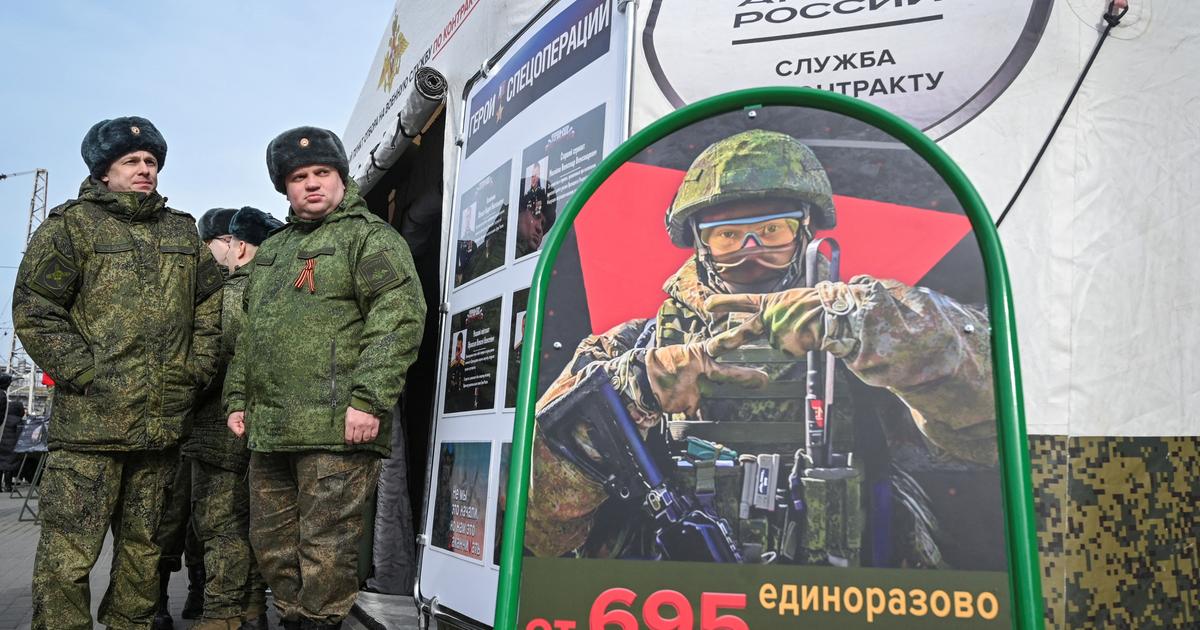Enlarge image
Screenshot from a reconnaissance video of the Center for Strategic Communications of Ukraine: "How a soldier of the Russian Federation can surrender"
Photo: Center for Strategic Communication of Ukraine
"I want to live" - With these words, the Ukrainian government is titled a project that should enable Russian military personnel to surrender safely to the Ukrainian armed forces.
The action, launched in September, guarantees detention in accordance with the Geneva Convention on the Treatment of Prisoners of War, according to the official website.
Russian military personnel therefore have several options for surrendering.
For example, by following certain instructions from a chatbot or by contacting a 24-hour hotline.
The BBC has now been given access to recordings of some such conversations.
According to the report, a reporter at Ukraine's prisoner-of-war headquarters met an employee who is said to be in daily contact with Russian soldiers.
By phone or via common messenger services such as WhatsApp or Telegram.
"First of all, we hear a voice, mostly a male one," said the woman, who is called Svitlana in this report.
"They're often partly desperate, partly frustrated because they don't quite understand how the hotline works or if it's just a set-up."
The BBC publishes mock chat messages in its report.
It says something like: »I come from Moscow.
I haven't received a draft notice yet, but there have been attempts to get it to me.
Do you have any advice for me what to do?
I will not kill Ukrainians.
I'd like to stay alive." Svitlana's team replied, "I'm a civilian.
I want to become a citizen of Ukraine.
I want all this to end as soon as possible.«
Svitlana also recalls the phone call from a man, said to be living in occupied Crimea, who had been mobilized to fight against his own family and country.
According to the report, she was not allowed to say how many Russians she helped or how exactly that happened.
Information warfare off the battlefield
Russia and Ukraine do not only fight each other on the battlefield.
The conflict has long since turned into an information war.
Fake news, propaganda, deliberately distributed partial information - all this is part of the modern arsenal of weapons.
Most recently experienced in the case of an alleged war crime against Russian soldiers.
Moscow calls it a cold-blooded execution, self-defense in a treacherous ambush is what Kyiv calls it.
As is so often the case, an independent assessment of these incidents is difficult.
Since September, the »I want to live« project has been aimed primarily at those reservists who were and are affected by the so-called partial mobilization in their homeland.
Those, as project leader Vitalii Matviyenko puts it, "who not only can't fight, but have to serve as cannon fodder."
They might surrender.
And so survive.
That's the calculation that Ukraine is making.
Both sides took prisoners in this war, how many is unclear.
Moscow had spoken of around 6,500 captured Ukrainians in June, Kyiv in September by hundreds of captured Russians.
However, both sides have violated international law, albeit not nearly to the same extent.
The UN Human Rights Commissioner Matilda Bogner described the mistreatment of Ukrainian prisoners by Russian forces and mercenaries as "quite systematic", while the mistreatment of Russian soldiers by Ukraine was "not systematic".
(Read more about the findings of the UN human rights organization OHCHR and the latest allegations here: What happened in Makiivka? )
Currency in prisoner exchange
Russian POWs, once surrendered, can be used as currency in future trades.
In fact, both sides have recently repeatedly reported the exchange of prisoners of war.
The US think tank »Institute for the Study of the War« explains the willingness of Moscow in particular to do so by saying that the Kremlin wants to curb the growing dissatisfaction of the population with the mobilization.
Many Russians fear for loved ones.
Russian soldiers keep contacting Svitlana and her hotline colleagues to provoke them.
However, she doesn't think everyone believes the Kremlin's claims that Ukraine is being ruled by Nazis.
"We can't judge an entire country," she said.
"Most of them are worried about their lives."
sac











